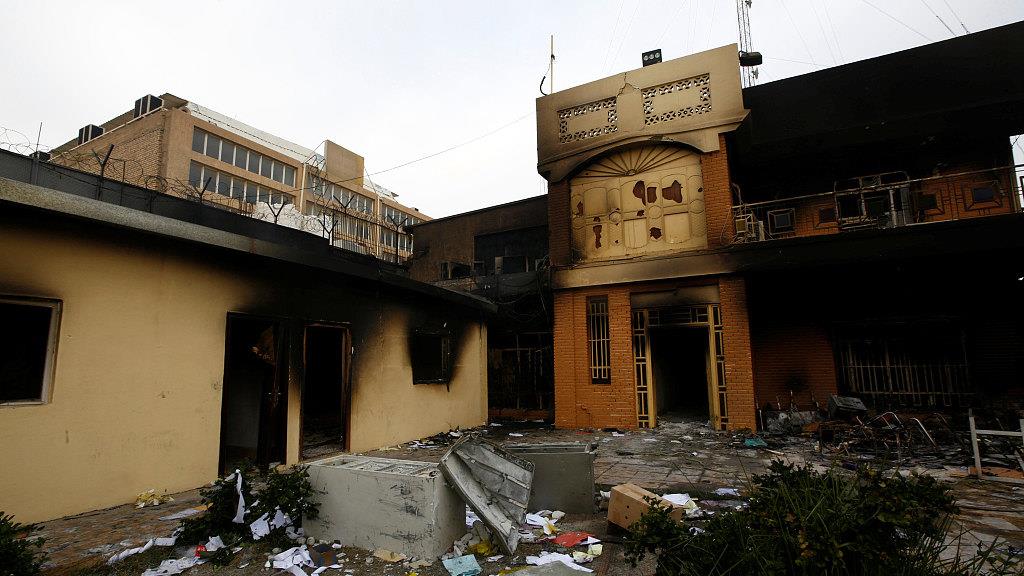BAGHDAD, Nov. 29 (CGTN) -- Iraqi security forces shot dead at least 45 protesters on Thursday after demonstrators stormed and torched an Iranian consulate overnight, Reuters reported.
At least 29 people died in the southern city of Nassiriya when troops opened fire on demonstrators who blocked a bridge before dawn on Thursday and later gathered outside a police station, Reuters said. Police and medical sources said dozens of others were wounded.
Xinhua reported a total of 31 deaths during the protests from November 26 to 28, citing the Iraqi Independent High Commission for Human Rights.
The institution said excessive force was used by security forces in Najaf Province and the Iraqi capital Baghdad. It also reported over 1,000 injuries.
In Nassiriya, thousands of mourners took to the streets, defying a curfew to bury their dead after the mass shooting.
The bloodshed that followed was one of the most violent days since the uprising began at the start of October, with anti-corruption demonstrations that swelled into a revolt against authorities seen by young demonstrators as stooges of Tehran.
Iran closed the Mehran border crossing to Iraq on Thursday night because of security reasons, the semi-official Mehr news agency reported, citing a local border official.
In Najaf, a city of ancient pilgrimage shrines that serves as seat of Iraq's powerful Shi'ite clergy, the Iranian consulate was reduced to a charred ruin after it was stormed overnight.
Iran's Foreign Ministry condemned the attack and demanded "the Iraqi government's firm response to the aggressors."
So far, the authorities have been unyielding in response to the unrest, while floating proposals for political reform that the protesters dismiss as trivial and cosmetic.
Prime Minister Adel Abdul Mahdi has so far rejected calls to resign, after meetings with senior politicians that were attended by the commander of Iran's Revolutionary Guards' Quds Force, the elite unit that directs its militia allies abroad.
Abdul Mahdi on Thursday summoned a senior military commander in Dhi Qar province, where Nassiriya is located, to Baghdad to explain why the situation had deteriorated, a military statement said.
Influential populist cleric Moqtada al-Sadr issued a fresh call for the government to resign, while warning those who torched the embassy that they risked provoking a violent backlash from the authorities.
Authorities set up "crisis cells" in several provinces to try to restore order, a military statement said on Thursday. They would be led by provincial governors but include military leaders who would take charge of local security forces.
